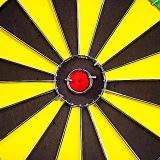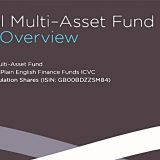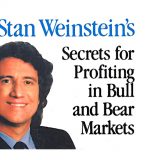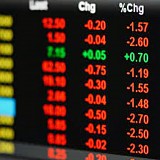Investor Profiles
This is the home page for our ‘Guru’ series of articles – investor profiles of those who have succeeded in the markets, with takeaways for the private investor in the UK.
The majority of the profiles are based around chapters of books which look at groups of successful investors, either by interviewing them or by analysing their methods.
- The model for this type of book is Jack Swchager’s Market Wizards series.
For reasons of space, the articles are superficial in comparison to the book chapters.
- Readers are encouraged to seek out the book chapter for any investor whose approach is of interest.
So far I plan to look at six books of interview / individual essays, listed below.
- Suggestions for additions to the list are very welcome.
As the series of articles builds, I will collect the main lessons – and the best quotes – on this page.
Warren Buffet is excluded from consideration, since we already have a series of articles which look at his Annual Letters to the shareholders of Berkshire Hathaway.
- You can find these here.
The books
- Market Wizards – Jack Schwager
[amazon asin=1118273052&template=thumbnail]
- New Market Wizards – Jack Schwager
[amazon template=thumbnail&asin=0887306675]
- Hedge Fund Market Wizards – Jack Schwager
[amazon template=thumbnail&asin=1480590010]
- Stock Market Wizards – Jack Schwager
[amazon template=thumbnail&asin=0066620597]
- Just One Thing – John Mauldin
[amazon template=thumbnail&asin=0470081813]
- Free Capital – Guy Thomas
[amazon template=thumbnail&asin=1906659745]
Required Reading
We have also covered (in some detail) a few more educational books that are popular with UK investors:
- Excess Returns – Frederik Vanhaverbeke
[amazon template=thumbnail&asin=0857194321]
- The Naked Trader – Robbie Burns
[amazon template=thumbnail&asin=0857194135]
- Smarter Investing – Tim Hale
[amazon template=thumbnail&asin=0273785370]
- The Little Book of Behavioural Investing – James Montier
[amazon template=thumbnail&asin=0470686022]
- Stan Weinstein’s Stage System for Bull and Bear Markets
[amazon template=thumbnail&asin=1556236832]
- Selecting Shares That Perform
[amazon template=thumbnail&asin=0273786741]
You can find these articles here.
- Excess Returns also has its own page here.
The investors
- Andy Kessler
- Colm O’Shea
- “Luke”
- Stuart Walton
- Michael Marcus
- Bill Lipschutz
- Dennis Gartman
- Ray Dalio
- “Nigel”
- Michael Lauer
- Bruce Kovner
- Randy McKay
- Mark Finn
- Larry Benedict
- “Bill”
- Steve Watson
- Richard Dennis
- William Eckhardt
- Gary Shilling
- Scott Ramsey
- John Lee
- Dana Galante
- Paul Tudor Jones
- Monroe Trout
- Ed Easterling
- Jaffray Woodriff
- “Sushil”
- Mark Cook
- Gary Bielfeldt
- Al Weiss
- James Montier
- Ed Thorp
- “Taylor“
Contents
The lessons (from the Investors)
The classics
- Cut your losses and let your profits run / add to your winners. – Michael Marcus, Bill Lipschutz, Dennis Gartman, Randy McKay
- The trend is your friend. – Dennis Gartman
- Markets can remain illogical for longer than you can remain solvent. – Dennis Gartman
- Think trades through, including profit/loss exit points, before you put them on. – Stuart Walton, Bill Lipschutz
- If you are unsure about a position, or it doesn’t feel right, just get out. – Stuart Walton, Michael Marcus
- If the price action doesn’t confirm the fundamentals, or vice versa, get out. – Stuart Walton, Bill Lipschutz, Randy McKay
- shrugging off bad news is bullish
- not reacting to positive news is bearish
- Use stops that prove your idea was wrong. – Colm O’Shea, Bruce Kovner
- Strategic lethargy – learn to be happy doing nothing. – “Luke”
- Aim for the “meat” of the trend – don’t try to pick tops and bottoms. – Randy McKay
Picking the trade
- Focus on the best trades, when fundamentals, technicals and market tone line up. – Michael Marcus, Dennis Gartman, Bruce Kovner, Larry Benedict
- Look for asymmetric trades, in which the maximum loss is limited but the profit potential is open-ended – Colm O’Shea
- Find the best way (highest reward-to-risk ratio) of implementing a trade – Colm O’Shea, Bill Lipschutz
- Concentrate on quality of decisions, rather than quantity of decisions. – “Luke”
- Look for a minimum 20% upside. – “Luke”
- Stick with your best ideas for the long haul. – “Luke”
- Look for confirmation between markets – divergence often means a reversal is imminent, but it could mean that the lagging market presents opportunities. – “Nigel”
- Look for pricing mistakes, long and short. – Michael Lauer
- 5-step value screening process – Michael Lauer:
- understand the industry
- a relative share price decline of 50%
- strong balance sheet (low debt to cash flow)
- company share repurchases or insider buying
- value – price to sales / cash flow / book value, with a potential catalyst for a price move upwards – restructuring, return to profitability etc.
Risk management
- Minimise counter-party risk (use the strongest counter-parties) – Colm O’Shea
- Use stop size and pain threshold to calculate position size – Colm O’Shea
- Don’t risk too much on a single idea. – Stuart Walton, Bill Lipschutz
- Don’t risk more that 2% to 5% of your capital on a single idea; that way you can be wrong twenty to fifty times in a row. – Michael Marcus, “Nigel”, Bruce Kovner
- Commit to an exit point on every trade. – Michael Marcus
- Use physical stops – protective stops force commitment on the trader. – Michael Marcus
- When you hit a losing streak, cut back your trading. Get out when you don’t understand what is going on. – Michael Marcus, Bill Lipschutz, Dennis Gartman, Bruce Kovner, Randy McKay, Larry Benedict
- Understand the risk /reward of the trade as it now stands, not as at your entry. – Bill Lipschutz
- Scale in and out of positions. – Bill Lipschutz
- When the share doubles, sell half, unless volume is still strong. – “Nigel”
- Use stops where there is unmanageable risk. – Michael Lauer
- Measure risk using correlations across trades, rather than per trade. – Bruce Kovner
- Be as market-neutral as possible, by going short as well as long. – Bruce Kovner
Liquidity and Leverage
- Stay liquid, especially in a bubble – Colm O’Shea
- Don’t double up on operational leverage with financial leverage. – “Luke”
- Don’t use leverage. – “Nigel”, Michael Lauer
Be yourself
- You need a method and style that suits your personality – Colm O’Shea, Randy McKay
- Self-awareness – look for your weaknesses, and try to fix them. – Stuart Walton
- Methodology – developed your own philosophy and methodology, trade on your own ideas and style. – Stuart Walton
- Follow your own light. Don’t rely on “experts”. You have to do your own homework. – Michael Marcus
Control your emotions
- Don’t get emotionally attached to trades – Colm O’Shea
- Get rid of all distractions. – Stuart Walton
- Don’t personalise the markets. – Bruce Kovner
- Avoid impulsive trades – stick to your system. – Brice Kovner
- Don’t worry about the trades that you aren’t in. – Randy McKay
Macro
- Look for trends that other people currently underestimate, extrapolate them out a few years, and see which companies will be the winners – Andy Kessler
- Work out what the impact of economic fundamentals must mean in the long run – Colm O’Shea
- Try to choose areas for investment with long-term secular growth. – “Luke”
Outside investing
- Find a balance in life – have fun and another focus outside trading. – Michael Marcus
Everything else
- You have to be prepared to make mistakes. You will only be right about half of the time – Colm O’Shea, Ray Dalio, Bruce Kovner
- There is often value beyond the equity analysts’ time horizon. – “Luke”
- Persistence – don’t let multiple failures stop you. – Stuart Walton
- Flexibility – one thing won’t work all the time. – Stuart Walton
- There is no conspiracy in the markets. – Michael Marcus
- Be objective and open-minded – a good trader can’t be rigid. – Michael Marcus
- Keep your technical systems simple. – Dennis Gartman
- Write down the reasoning behind every trade; if one goes wrong, work out why and how you can avoid it happening again in the future. – Ray Dalio, Randy McKay
- Use trend-following systems for diversification. – Bruce Kovner
- Past performance is a poor guide to future performance. – Mark Finn
- Recent outperformance is mostly down to the style (factors) used by a manager. – Mark Finn
The quotes
You can’t make money standing in the sunshine. I’d rather be out in the fog where nobody knows nothin’. – Andy Kessler
Invest first; investigate later. – George Soros
Fundamentals are not about forecasting the weather for tomorrow, but rather noticing that it is raining today. – Colm O’Shea
I am not particularly original. If you read the Financial Times, it’s all there. – Colm O’Shea
I believe in compounding and not losing money. – Colm O’Shea
Implementation is more important than the trade idea behind it. Having a beautiful idea doesn’t get you very far if you don’t do it the right way. – Colm O’Shea
What is important to the market is not whether growth is good or bad, but whether it is getting better or worse. – Colm O’Shea
The main thing about bubbles is that you need to be early. I have an aversion to things that make no sense, and I should get over that. – Colm O’Shea
Trading is a skill that can’t be taught, but it can be learned. – Colm O’Shea
The only completely consistent people are the dead. – Aldous Huxley
Man is least himself when he talks in his own person. Give him a mask, and he will tell you the truth. – Oscar Wilde
In the fields of observation, chance favours the prepared mind. – Louis Pasteur
The more I practice, the luckier I get. – Gary Player
Concentrate on quality of decisions, not quantity of decisions. – “Luke”
One of the big mistakes in investing is that you’ve always got to be doing something. Most investors would have better performance if they thought more and did less. One of the great tricks is learning to be happy doing nothing. – “Luke”
Better to have a few good long-term friends, rather than change your friends every week for short-term advantage. – “Luke”
The worst thing you can do as a beginning trader is to have your first trade work. – Stuart Walton
The hardest thing to do is to buy a high-flying stock or to sell a stock that has gone down a lot, but … the hardest thing to do is the right thing to do. – Stuart Walton
Buy on extreme weakness and sell on extreme strength. Get a feel for the sentiment, whether it is euphoria or pessimism. – Stuart Walton
Any stock can go to zero, and you need to realize that. – Stuart Walton
Someone who has never made a mistake is dangerous, because mistakes will happen. – Stuart Walton
While you are in, you can’t think. When you get out, then you can think clearly again. Have a good night’s sleep and get back in if you want to. – Michael Marcus
Mix and match often leads to picking the worst from each approach. If you are in someone else’s trade you won’t have the courage to stick with it. – Michael Marcus
The average broker couldn’t be a trader in a million years. – Michael Marcus
When I was trading big, I wanted to have a reason to keep doing it, so I just spent money wildly. – Michael Marcus
Ninety-nine percent of the time, the market goes where it wants. There are exceptions, but they don’t last too long. – Michael Marcus
You can’t trade 13 hours a day for 20 years. You will end up over-trading or getting too upset about temporary setbacks. – Michael Marcus
Losing begets losing … it touches off negative elements in your psychology; it leads to pessimism. – Michael Marcus
A fast market gives the floor brokers a special license to steal, above and beyond their normal license to steal. – Bill Lipschutz
There’s a perception that everyone is a trader, but only about a half-dozen people took real risk. The rest were just making markets. – Bill Lipschutz
Good traders constantly ask themselves: What am I doing right? What am I doing wrong? How can I do what I am doing better? How can I get more information? It’s obsessive. – Bill Lipschutz
It’s not enough to simply have the insight to see something apart from the rest of the crowd, you also need to have the courage to act on it and to stay with it. – Bill Lipschutz
You have to figure out how to make money being right only 20 to 30 percent of the time. – Bill Lipschutz
It is not our duty to trade upon the bullish side, nor the bearish side, but upon the winning side. – Jesse Livermore
Sir, the facts have changed regarding this company, and when the facts change, I change. What do you do, Sir? – John Maynard Keynes
Markets are the sum total of the wisdom and stupidity of all who trade in them. – Dennis Gartman
Much of what is packaged as alpha is really beta sold at alpha prices. – Ray Dalio
Most learning comes via making mistakes and reflecting on them. – Ray Dalio
In trading you have to be defensive and aggressive at the same time. If you are not aggressive, you are not going to make money, and if you are not defensive, you are not going to keep money. – Ray Dalio
The biggest mistake investors make is to believe that what happened in the recent past is likely to persist. They assume that something that was a good investment in the recent past is still a good investment. – Ray Dalio
Deleveragings are very different from recessions. – Ray Dalio
A frugal lifestyle can be creative and dignified … freedom is like income that cannot be taxed. – “Nigel”
Everyone is a genius in a bull market, so find a bull market! – “Nigel”
A market doesn’t peak until the majority is convinced it is going to move higher, and it doesn’t bottom until the majority believes it must go lower. – “Nigel”
All that is required for successful investing is the commonsense analysis of today’s facts and the courage to act on your convictions. – Michael Lauer
This business is not about investing in great companies; it’s about profiting from inefficiently priced stocks. – Michael Lauer
You have to be willing to make mistakes regularly; it’s about making your best judgment, being wrong, making your next best judgment, being wrong, making your third best judgment, and then doubling your money. – Bruce Kovner
The less observed, the better the trade. – Bruce Kovner
Don’t get caught in a situation in which you can lose a great deal of money for reasons you don’t understand. – Bruce Kovner
The beginning of a price move is hard to trade because you’re not sure whether you’re right. The end is hard because people start taking profits and the market gets very choppy. – Randy McKay
I never try to buy a bottom or sell a top. Even if you manage to pick the bottom, the market can end up sitting there for years and tying up your capital. – Randy McKay
I used to like buying or selling on breakouts, but nowadays the breakouts that work look similar to the breakouts that are sucker plays. I now buy on breaks and sell on rallies. – Randy McKay
You have to be more concerned about the moves you’re in than the moves you’re not in. – Randy McKay
When I get hurt in the market, I get the hell out. It doesn’t matter where the market is trading. Once you’re hurt, your decisions are going to be far less objective. – Randy McKay
What an investor “knows” about the future is small compared to what he can’t know. – Mark Finn
By comparing apples to apples you reduce a significant amount of noise. – Mark Finn
I never gave up. I saw all these other guys making money, and I thought if they could do it, I could do it. – Larry Benedict
I have seen a number of traders who ended up committing suicide or being homeless. They all had a gambler’s mentality. When they were losing, they were always looking for that one trade that would make it all back. You can’t do that. – Larry Benedict
I never visit companies, hardly ever go to an AGM, and speak to hardly anyone. I’m not looking for soft information. I’m looking for shares where the raw numbers scream at me to buy. – Bill
I probably learned more in that first few months as a full-time investor than I had in the previous 15 years of dabbling. – Bill










































